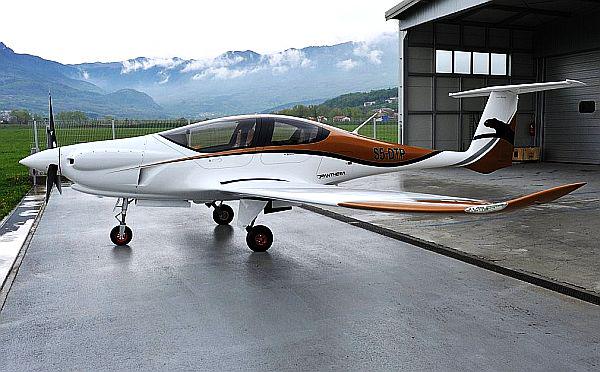
As Slovenia tries to find its way out of the current economic crisis, many observers are looking at the examples set by companies that have not only weathered the storm, but have managed to expand their business. One such success story is Pipistrel, based in the town of Ajdovščina.
The manufacturer of ultralight aircraft has set world records, received numerous awards, successfully launched new technologies, and managed to sell its products to users around the world. Pipistrel’s focus on technological innovation has helped the company maintain solid financial results at a time when the Slovenian economy in general is facing some of the roughest times since independence.
Pipistrel, its name derived from the Latin word for “bat”, was founded by Ivo Boscarol, a sailplane and hang-gliding enthusiast who received a license to manufacture ultralight aircraft in 1987. Those were the waning days of Communist Yugoslavia, and ultralight aircraft were strictly regulated. In fact, Boscarol smuggled in his first hang glider surreptitiously – part by part, across the border from Italy. Since light flying was so restricted, Boscarol and his friends initially flew in secret, usually in the evenings.
Pipistrel’s aircraft soon became well-known for their superior design and performance. The company shifted from its initial its emphasis on powered hang-gliders to ultralight aircraft that looked like full-sized private airplanes. One of the early models, the Sinus, was the first serially built ultralight made out of composite materials. A later model became the fastest ultralight in the world (reaching speeds of up to 300 kilometers an hour), and in 2004, a Pipistrel model became the first ultralight aircraft to circle the globe.
The exceptional performance and design of Pipistrel’s aircraft began to attract international attention. Orders started coming in from around the world, and in 2007, NASA recognized Pipistrel’s Virus model as the personal aircraft of the future. A Year later, the U.S. magazine Popular Science named another Pipistrel model one of the most important innovations of 2008.
Then, in 2011, NASA recognized Pipistrel’s Taurus G4 model as the most efficient electric aircraft in the world. The prize, presented in partnership with Google, came with a $1.65 million award, invaluable global publicity, and a request by NASA for the winning aircraft to be placed in its museum. Pipistrel also received the European Business Award for the most innovative company in Europe.
The success of Pipistrel has not just enabled Boscarol to meet with influential figures – he was even introduced to Queen Elizabeth II --, but has given him political clout of his own. He has frequently criticized Slovenian governments for the bureaucratic barriers imposed on entrepreneurs. He recently moved a part of Pipistrel’s production to Italy, primarily because registration procedures were easier and cheaper across the border.
For Slovenian politicians and the media, the complaints made by such a prominent entrepreneur – one of the most successful businesspeople that the country has ever had – serve as a serious warning. When the founder of Pipistrel speaks, people listen.

































































